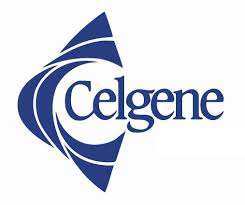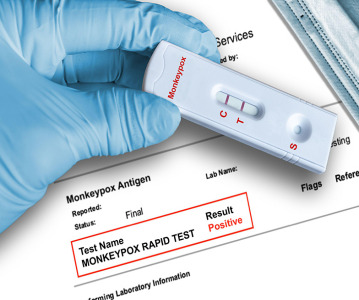Abraxane (Nab-Paclitaxel) Demonstrates Survival Advantage in Metastatic Pancreatic Cancer in Study

Published in the New England Journal of Medicine (NEJM), a Phase III clinical trial of Abraxane (paclitaxel formulated as albumin-bound nanoparticles) in combination with gemcitabine in treatment-naive patients with metastatic pancreatic cancer demonstrated a statistically significant improvement in overall survival compared with patients receiving gemcitabine alone [(median of 8.5 versus 6.7 months) (HR 0.72, P=0.000015)].1
In the MPACT (Metastatic Pancreatic Adenocarcinoma Clinical Trial) study, nab-paclitaxel plus gemcitabine demonstrated a 59% increase in 1-year survival (35% versus 22%, p=0.0002) and double the rate of survival at 2 years (9% versus 4%, p=0.02) compared with gemcitabine alone.1
“Today’s news of nab-paclitaxel plus gemcitabine demonstrating up to 2 years' survival in some patients represents a major new advance in the treatment of metastatic pancreatic cancer,” commented Dr Harpreet Wasan, Consultant Oncologist & Reader, who runs a pancreatic cancer research programme. “At the moment, treatment options for patients with metastatic pancreatic cancer are very limited, with average life expectancy around 6 months, therefore these results potentially offer crucial new hope in the battle against this intractable disease.”
Nab-paclitaxel plus gemcitabine also demonstrated a statistically significant improvement in key secondary endpoints compared to gemcitabine alone, including a 31% reduction in the risk of progression or death with a median progression-free survival (PFS) of 5.5 versus 3.7 months (HR 0.69, P=0.000024) and an overall response rate (ORR) of 23% compared with 7% (response rate ratio of 3.19, p=1.1 x 10-10).1 Another endpoint assessed included time to treatment failure, which was significantly improved with the nab-paclitaxel combination compared with gemcitabine alone [(median 5.1 versus 3.6 months) (HR 0.70, P<0.0001)].1
“We are excited by the results of the MPACT study published in the NEJM, and the potential this treatment combination may bring to UK patients with metastatic pancreatic cancer,” said Dr David Gillen, Medical Director, Celgene UK and Ireland. “As the largest Phase III clinical trial in metastatic pancreatic cancer, the clinically meaningful findings seen across key study endpoints and patient subgroups are a reflection of our ongoing commitment to develop innovative new therapies in areas of high unmet need.”
The most common grade ≥ 3 treatment-related adverse events in the study for nab-paclitaxel plus gemcitabine versus gemcitabine alone were neutropenia (38% versus 27%), fatigue (17% versus 7%), and neuropathy (17% versus 1%).1 In the nab-paclitaxel plus gemcitabine arm, the median time to neuropathy improvement was 29 days. There was no difference in serious life threatening toxicity (4% in each arm).1
Based on the strength of this data, Celgene has applied to the European Medicines Agency (EMA) for a licence in metastatic pancreatic cancer.
Related News
-
News CPHI Frankfurt 2022: Innovator Interview – DSM Biomedical
At CPHI Frankfurt we spoke to Anne-Cecile Bayne, Global Science & Innovation Lead Pharma and Medical Nutrition, and Marc Hendriks, Vice President Strategy & Business Development, on their expertise in nitrosamines and business strategy at DSM Biomedica... -
News New WHO health emergency guidelines expect full transparency from Big Pharma
The WHO are proposing a new set of pandemic guidelines to set out how future global health crises should be handled. -
News Magic mushrooms could be used to treat mental health conditions
A compound found in magic mushrooms, psilocybin, could be used to treat mental health conditions and help patients suffering with severe depression, as shown by the results of the largest study of its kind to date. -
News UK-based partnership to launch DETERMINE study into rare cancer research
UK-based CRO Quanticate is set to partner with Cancer Research UK for the launch of the DETERMINE study focused on testing a range of existing and approved drugs and therapies on rare cancers. -
News FDA approves Thermo Fisher blood tests for wheat and sesame allergies
Both tests have been approved by the US regulator for in vitro diagnostic use -
News QIAGEN launches world’s first syndromic test for monkeypox
The test can distinguish between monkeypox and other diseases that cause similar symptoms. -
News Monkeypox Update: Vaccine shortage, sewage surveillance and global testing
As concern over the monkeypox outbreak continues to rise, we take a look at major developments from the first week of August. -
News CPHI Podcast Series: The importance of novel excipients for innovative drug development
The latest episode in the CPHI Podcast Series dives into the world of novel excipients and explores their importance for innovative drug development.
Position your company at the heart of the global Pharma industry with a CPHI Online membership
-
Your products and solutions visible to thousands of visitors within the largest Pharma marketplace
-
Generate high-quality, engaged leads for your business, all year round
-
Promote your business as the industry’s thought-leader by hosting your reports, brochures and videos within your profile
-
Your company’s profile boosted at all participating CPHI events
-
An easy-to-use platform with a detailed dashboard showing your leads and performance


.png)




